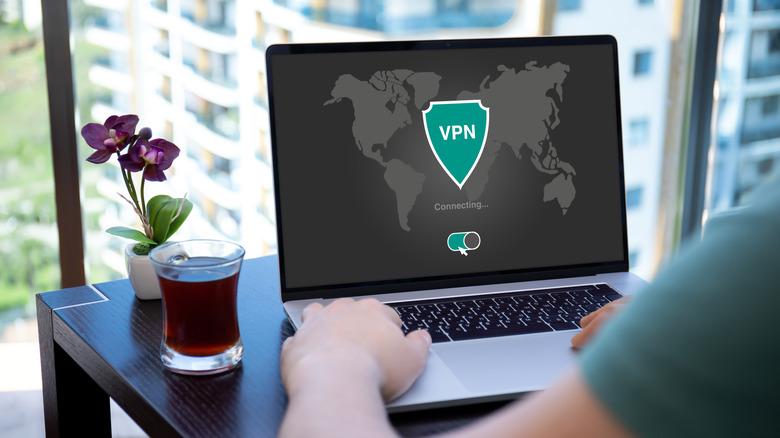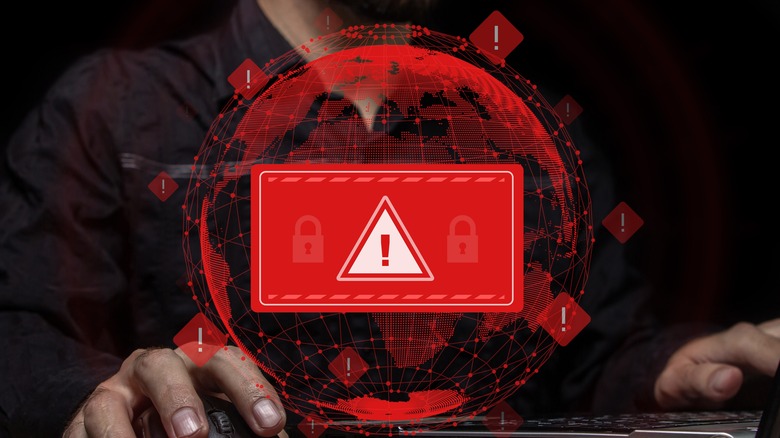3 Reasons Why You Should Never Trust Free VPN Services
While the internet is a treasure trove of information and entertainment, potential dangers lurk behind every link we click and webpage we open. That's why many of us turn to virtual private networks (VPNs) to protect us as we browse the World Wide Web. VPNs help keep us safe from cybercriminals, government snooping, and ISP tracking by encrypting our data so nobody can see what we're doing online. That's not all; many people use VPNs to access geo-blocked services to stream content that's unavailable in their region.
With so many benefits, you may be tempted to try out one of the many free VPN services advertised online. After all, they claim to do the same things as the best paid VPN services at no cost to you. If you're trying to save some cash, it sounds like a win-win situation. But you may want to think twice before signing up for one of these services because what they offer is often too good to be true.
The privacy paradox
One of the biggest arguments against using free VPN services is that they're notorious for collecting and selling user data. Free VPN services keep track of every website you visit, every download, and every online interaction, and use all of that information to create a comprehensive profile about your online behaviors.
However, they don't stop there. The information they collect often finds its way into the hands of marketers and advertisers. As a result, those seeking online anonymity through free VPNs unwittingly become targets of invasive advertising and marketing practices. Most people turn to VPNs for increased privacy, so it's ironic that free VPNs actually do the opposite, compromising your privacy and security by logging all of your online activities and selling the information they gather to third parties.
Security is the foundation of any reputable VPN service, but many free VPNs fall short. They often cut corners and have lax security controls and protocols, defeating the purpose of using a VPN and exposing users to cyber threats, including hacking and data theft. Unfortunately, users who sign up for these services may be lulled into a false sense of security, thinking their data is encrypted and protected when, in fact, it's not.
The bandwidth bottleneck
Thinking about signing up for a free VPN to get around location-based restrictions for streaming services? Sadly, free VPNs aren't the answer. Most free VPNs have bandwidth restrictions, so they throttle their speeds after users consume a certain amount of data. While you may be able to access Netflix's US catalog while traveling overseas with a free VPN, you'll likely experience slow loading times and buffering, leading to a slow and frustrating streaming experience. What is guaranteed is your internet speed will never be as fast as it should be when using a free VPN.
When using a free VPN, you'll also have to deal with a limited data allowance, which refers to the maximum amount of data you can consume within a specific time frame. For example, a free VPN service might offer users 500MB of data per day; once you've reached the limit, you won't be able to use the service until the next cycle begins, or you'll have to purchase additional data to keep using it, which defeats the purpose of using a free service.
Free VPNs often have a limited number of server locations, and those that are available are often overcrowded, resulting in slow connection speeds as too many users try to connect to the same server simultaneously. This overcrowding can also lead to server downtime and connectivity issues, putting a damper on the user experience.
The Customer Support Shortfall
Most of us are used to picking up the phone and getting help when we have a problem with a service. That's not going to happen with a free VPN. Instead, if you try to get help, you'll likely find yourself dealing with a maze of automated responses and generic FAQs, with personalized assistance a rare commodity. When you consider free VPNs are operating with limited resources, this becomes somewhat understandable.
However, it's still frustrating to experience technical issues or have security concerns and not be able to get in touch with anyone who can help you. Even if you're lucky enough to find a support page, the information is often limited and unlikely to address your concerns effectively. Most of the support resources free VPNs offer are generic and not tailored to individual user's specific issues. Whether you're dealing with connection problems or performance issues, since free VPNs typically don't have a dedicated support team, your issues will likely go unresolved.



